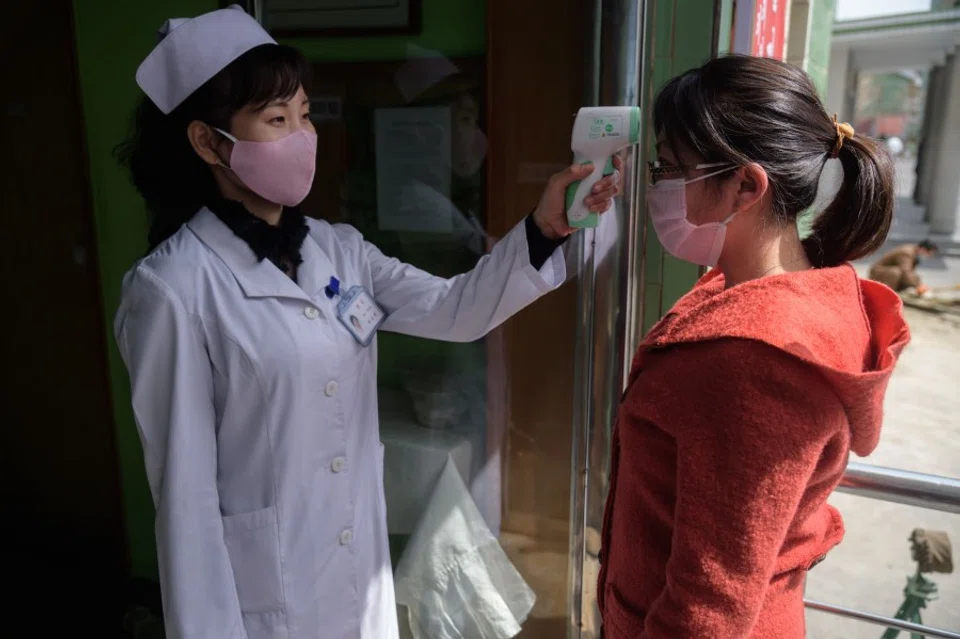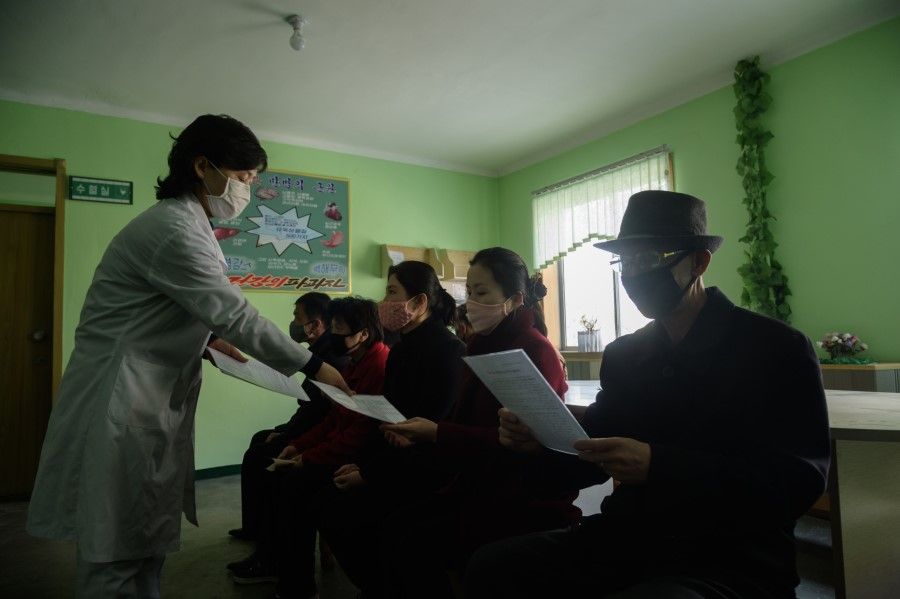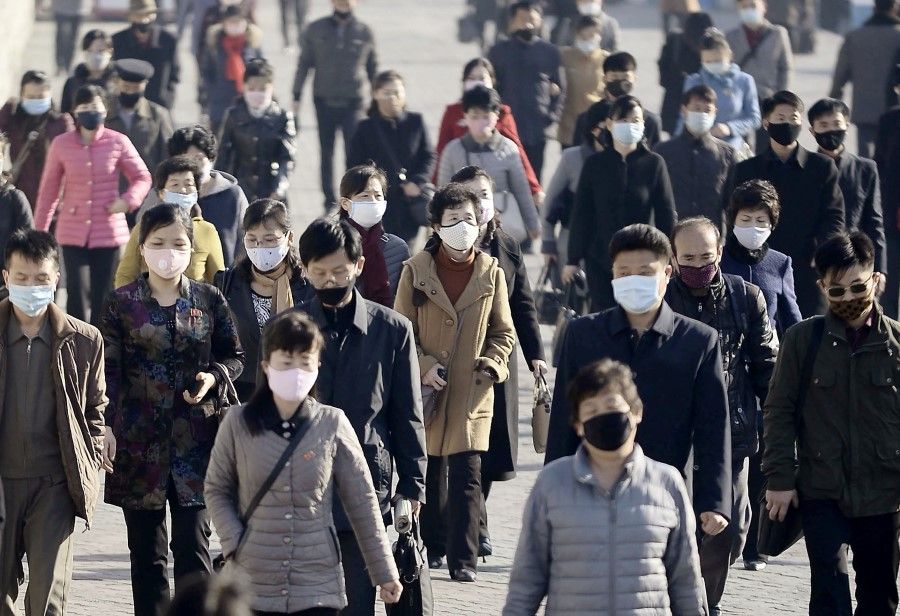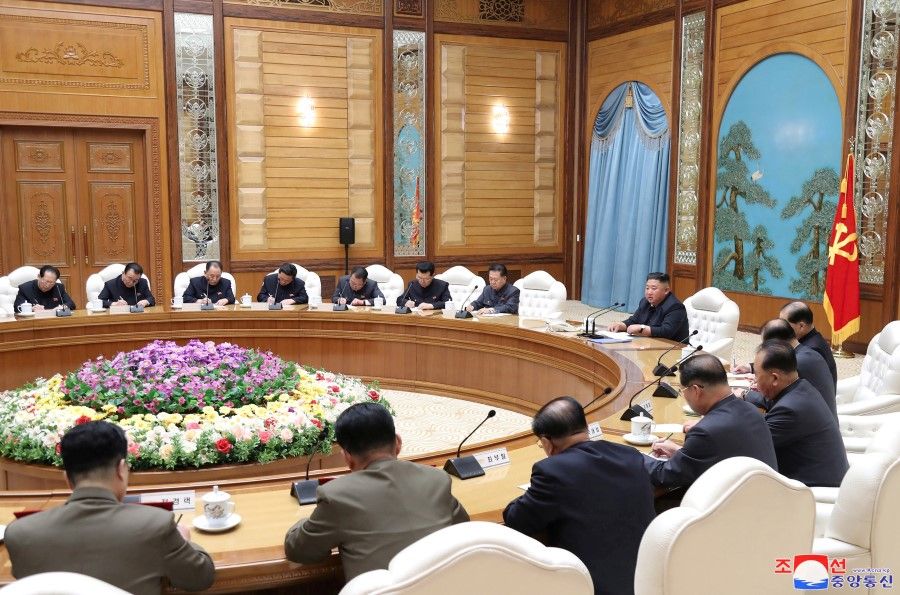Chinese academic: Can North Korea's healthcare system survive the pandemic?

The global coronavirus pandemic has wreaked havoc on the world and is proving to be a stiff test of countries' capabilities and people's abilities to handle crises. With the outbreak still not effectively controlled, many countries have been forced into a state of emergency, and are exhausted and in despair at not being able to reverse the situation.
On 12 April 2020, Cuba (per capita GDP not more than US$10,200) sent doctors to Italy (per capita GDP US$38,000), sparking intense debate. Cuba's sophisticated medical technology and healthcare system also caught the world's attention.
North Korea's healthcare system had similar beginnings to Cuba's because both took reference from the healthcare system of the former Soviet Union. Even though North Korea has not announced any confirmed coronavirus cases so far, a closer look at its medical system could be telling of its ability to handle crises such as the spread of the coronavirus.
This effectively means that each household has a doctor in charge who provides door-to-door medical and healthcare services and reports to the state on disease prevention among the grassroots, so that the state has accurate and timely information to come up with effective measures.
The "section doctor system" in North Korea
Since its founding, North Korea has formed its medical and healthcare policies according to its economic and social situation.The three main components of North Korea's healthcare system are free healthcare, preventive healthcare, and the "section doctor system" as the core element.

The section doctor system is how North Korea anchors the first line of its medical safety net in residential areas and has a grip on the health of the entire nation from the grassroots upwards. Generally, three to four doctors not only provide medical services to patients, but also visit the households under their charge, monitor the health of residents and provide diagnoses and treatments. This effectively means that each household has a doctor in charge who provides door-to-door medical and healthcare services and reports to the state on disease prevention among the grassroots, so that the state has accurate and timely information to come up with effective measures.
However, as North Korea did not invest sufficiently in healthcare during the early period, its healthcare standards and facilities were far behind Cuba's.
In such a system, villages and neighbourhoods have their own clinics, similar to community hospitals in China, while cities and counties have people's hospitals. Provinces and directly-administered cities under the top administrative agencies have people's hospitals and university hospitals to provide comprehensive treatment. However, as North Korea did not invest sufficiently in healthcare during the early period, its healthcare standards and facilities were far behind Cuba's.
Free for all?
With economic progress, North Korea has built a comprehensive system of healthcare services from the central level to local levels, in areas such as paediatrics, women's healthcare, and Koryo medicine or traditional Korean medicine. Everyone gets equal medical treatment, regardless of how old they are, or where they live, or what job they do. As a symbol of the superiority of North Korean socialism, North Korea's free healthcare may sometimes be less than perfect, or just an empty tag, but it is a system that the people are proud of.
North Korea's free healthcare system was a natural choice to stabilise political power, given its political and economic situation.
North Korea's priority system favours the privileged and those who make special contributions to the country, which - given the country's limited medical resources - clearly cannot guarantee that the healthcare needs of the ordinary people are met.
Free healthcare was first introduced in North Korea with the Social Insurance Law of 1947, for labourers, farmers, office workers and their families. During the Korean War, this was expanded to the entire population. By 1960, free healthcare was available throughout North Korea, and formalised in 1980. The implementation of free healthcare sparked the people's patriotism and strengthened political power, establishing a smooth, top-down medical system.

But while North Korea has established a comprehensive healthcare system, there are contradictions within its unique system. For one, North Korea's priority system favours the privileged and those who make special contributions to the country, which - given the country's limited medical resources - clearly cannot guarantee that the healthcare needs of the ordinary people are met.
After Kim Jong-un came to power, he started to focus on economic development and science and technology, and developed the medical and healthcare industry by setting up large-scale hospitals and medical research facilities, as well as factories for medical supplies.
Foreigners within North Korea had to be quarantined for 30 days, until the outbreak was well and truly over.
Response to the Covid-19 situation
Since the coronavirus outbreak, there has been a lot of attention on North Korea's coronavirus efforts. Not only did North Korea activate "top-class emergency anti-epidemic measures" during the initial outbreak, ensuring its efforts against the coronavirus were organised, consistent, and mandatory, it was one of the first countries to implement strict control measures. And as more was known about the coronavirus, North Korea adjusted its measures accordingly, showing its strong ability to organise people and implement policies.
In late January 2020, North Korea's ad hoc health committee announced that the healthcare system was in national emergency mode for the coronavirus. It set up a special committee to direct coronavirus efforts, halted tourist entries, closed its borders, and suspended international flights and passenger transport. Foreigners within North Korea had to be quarantined for 30 days, until the outbreak was well and truly over. Provinces, cities, and counties also actively engaged in coronavirus efforts, with daily disinfection of public spaces and comprehensive publicity on coronavirus prevention.
By the end of May, available data shows that North Korea had quarantined over 25,000 people, and tested 709 people for the coronavirus.
In addition, North Korea disallowed people from coming together for meals or attending public gatherings. The winter holidays for schools (typically ending in February) were also extended, which meant classes were postponed. Malls in Pyongyang, such as Daesong Department Store and Pyongyang Department Store No. 1, have taken appropriate measures to limit traffic. By the end of May, available data shows that North Korea had quarantined over 25,000 people, and tested 709 people for the coronavirus. At the same time, North Korea is actively seeking assistance from other countries, through civil organisations.
On 11 April 2020, Kim Jong-un held a meeting of the Politburo, which adopted a joint resolution by the ruling party Central Committee (CC), the State Affairs Commission (SAC), and the Cabinet of the DPRK "on more thoroughly taking national measures for protecting the life and safety of our people from the worldwide epidemic disease". It called for intensifying the nationwide emergency efforts against the coronavirus, showing how seriously the North Korean government is taking the pandemic, and that the coronavirus situation in North Korea does not look good.
With economic growth at a standstill, the people have no choice but to count on the supplementary community healthcare system driven by farmers' markets.

North Korea's healthcare system is similar to that of Cuba's, but it lags far behind Cuba in terms of standards and facilities because of a lack of investment. With economic growth at a standstill, the people have no choice but to count on the supplementary community healthcare system driven by farmers' markets. (NB: According to a Daily NK report, retired doctors and traditional Korean medicine practitioners have been offering their medical services in the markets.) Furthermore, since 2016, the international community has imposed harsh general sanctions on North Korea, putting its economy in an even worse crisis.
The negative impact of the coronavirus on various economies is gradually becoming apparent. Whether the North Korean system is as fragile as described by the US and South Korea or even if it will be paralysed should any confirmed coronavirus cases appear, is an indicator of North Korea's ability to handle crises such as epidemics.
Apart from all this, whether North Korea's top-down political system and its extraordinary strictness and efficiency in mobilising people and maintaining social control can help it avoid the coronavirus, whether it has the finances to tide over the coronavirus, and whether its current healthcare system has everything under control as publicised, is a huge challenge and test for Kim Jong-un's political power.
